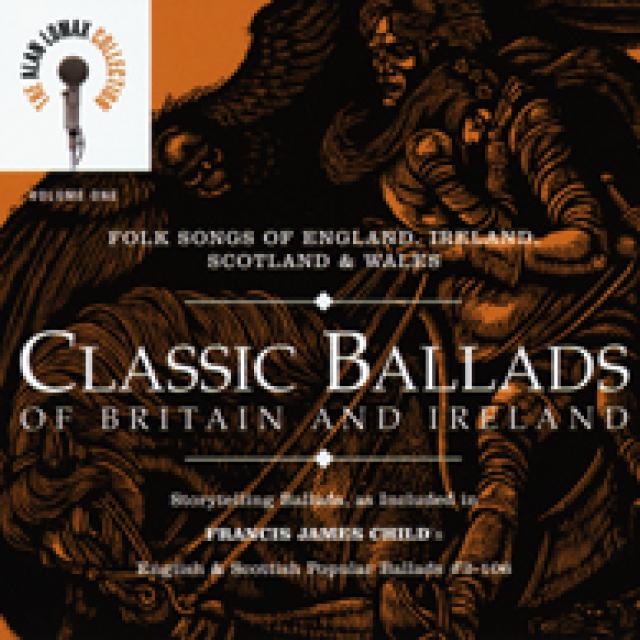
|
Classic Ballads of Britain and Ireland, Vol. 1
As included in Francis James Child’s English & Scottish Popular Ballads (1882–1898), Nos. 2–299
Recorded in the field between 1949 and 1968 by Peter Kennedy, Alan Lomax, Bob Copper, Seamus Ennis, Hamish Henderson, Maud Karpeles, Sean O’Boyle, and Patrick Shuldham-Shaw, assisted by Shirley Collins
Notes by Alan Lomax and Peter Kennedy
Romantic, historical, dramatic, and comic ballads, both familiar and rare, recorded in the field in pubs, country cottages, and at tinker firesides. Fifty years after they were documented by Francis James Child, these ballads still lived in the repertoires of some of the finest traditional singers in England, Ireland, Scotland, and Wales.
|
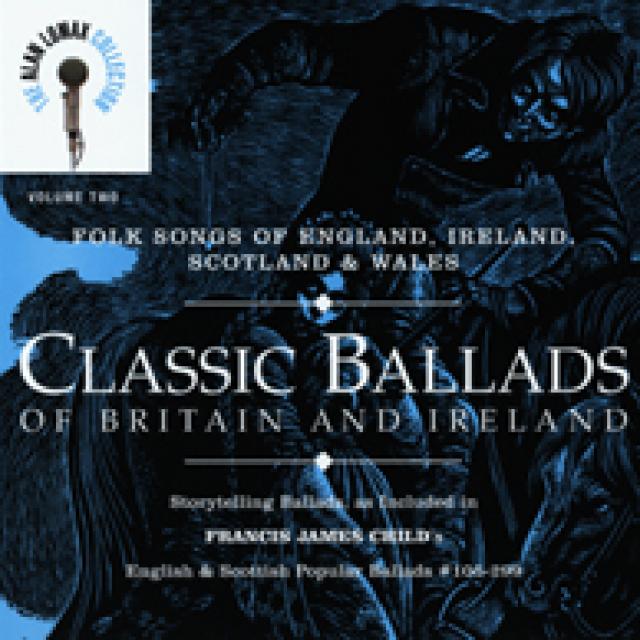
|
Classic Ballads of Britain and Ireland, Vol. 2 (#106-299)
|
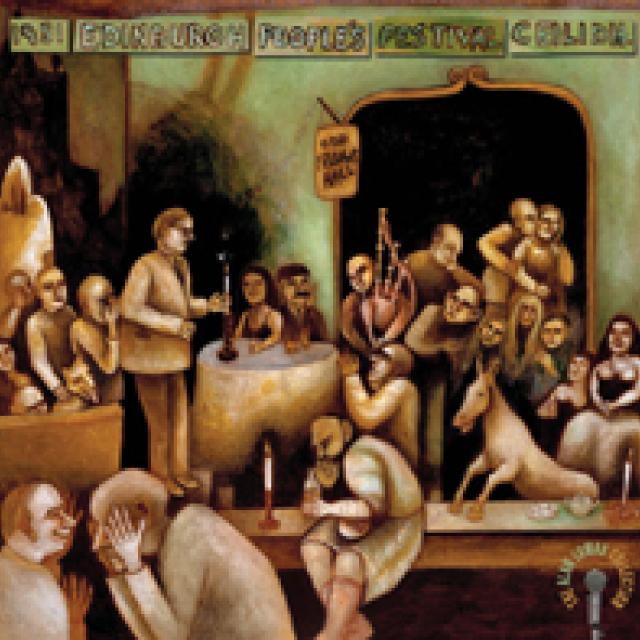
|
1951 Edinburgh People’s Festival Ceilidh
Recorded 1951 by Alan Lomax
Notes by Ewan McVicar
The 1951 Edinburgh People’s Festival Ceilidh was the event that both heralded and inspired the Scottish Folk Revival of the 1960s. Presided over by the legendary poet, songwriter, and folklorist Hamish Henderson, it featured some of the leading lights of the traditional music scene. Luckily, Alan Lomax was on hand to document this spirited, moving event.
“[This] crystalline reconstruction of a rollicking good night enraptures.” —Glasgow Herald
“A must.” —BBC Radio Scotland
|
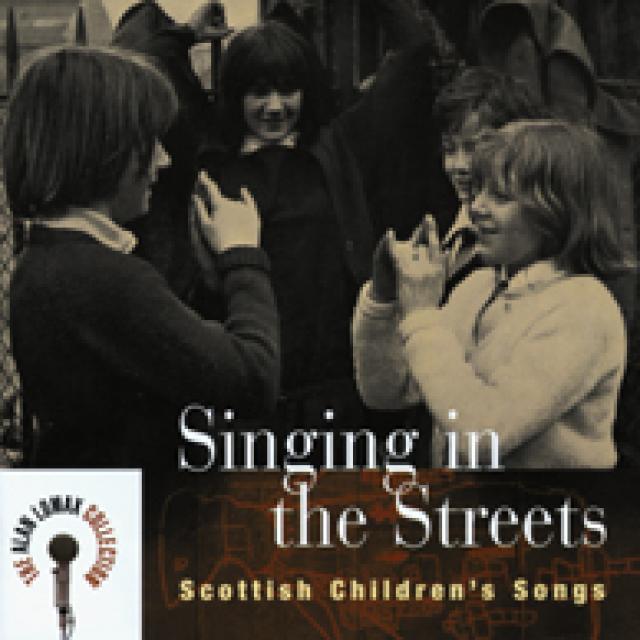
|
Singing in the Streets: Scottish Children’s Songs
Recorded from 1951–1957 by Alan Lomax, Hamish Henderson, and the MacCleans of Raasay
Notes by Ewan McVicar
These gleanings of ephemeral, often surreal children’s lore were gathered in a playground in the crowded city of Edinburgh; a quiet schoolroom on a lonely Hebridean isle; a suburban street in Aberdeen; and in conversations with James T. Ritchie, one of Scotland's foremost childlore experts; and with Ewan MacColl and Hamish Henderson, two giants of the Scottish folk revival.
Listed in Top Five 2005 Folk Releases, Other Music, New York City
|
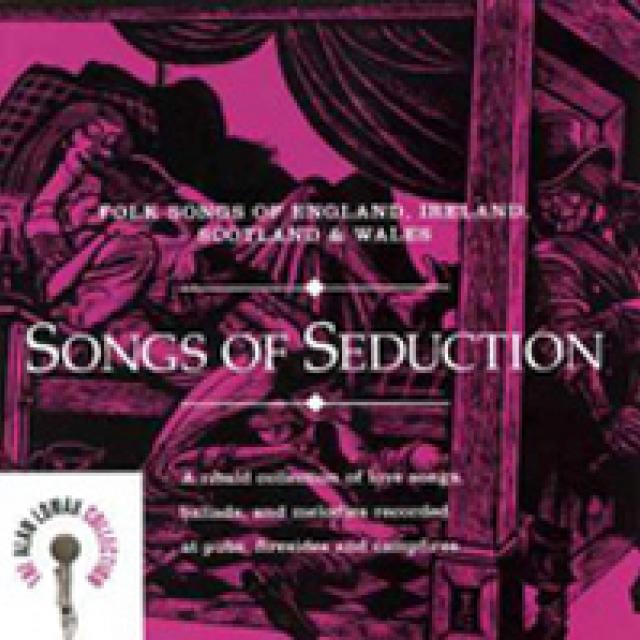
|
Songs of Seduction
Recorded 1950–1956 by Seamus Ennis, Hamish Henderson, Wyn Humphries, Peter Kennedy, Alan Lomax, Sean O’Boyle
Original notes by Alan Lomax and Peter Kennedy; extended and revised by Peter Kennedy
A collection of ribald love songs, ballads, and melodies, recorded in pubs and at tinker encampments from the greatest traditional singers of England, Ireland, Scotland, and Wales of the time. In these songs the lusty spirit of Boccaccio and Chaucer tunefully lives on.
“Songs of Seduction is an important document of the musicians of the British Isles performing the music they love without shame.” —Peterborough Folk Music Society
|
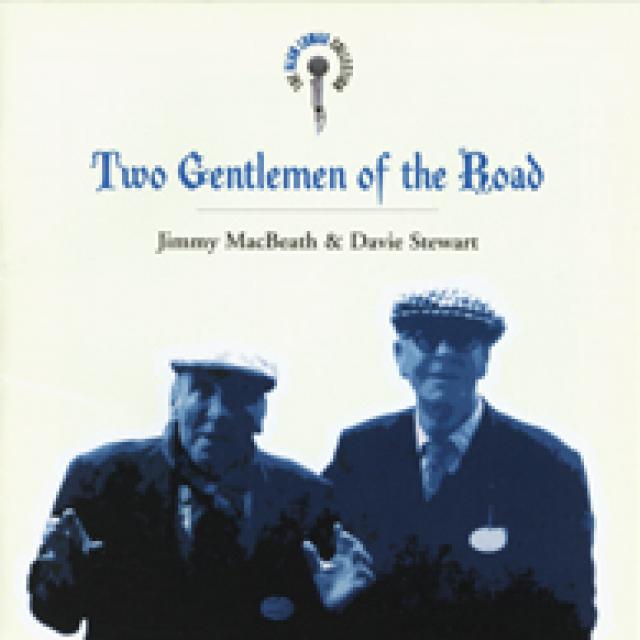
|
Two Gentlemen of the Road: Jimmy MacBeath and Davie Stewart
Recorded 1951–1957 by Alan Lomax and Hamish Henderson
Notes by Ewan McVicar
These two discs of personal history, ballads, and fairy tales offer fascinating insights into the lives and music of two singer-storytellers, Travelers from northeast Scotland. Jimmy MacBeath’s warm, husky voice made him one of Scotland’s most beloved traditional singers. His friend, and occasional traveling companion, Davie Stewart, won similar fame for his dramatic delivery and idiosyncratic accordion accompaniments, which impressed all who heard him. The first disc describes the traveling life on the roads of Britain, Ireland, and further afield, and includes a chilling story of murder by “berkers” (body snatchers).
“The significance of these recordings cannot be stressed too highly and we are truly indebted to Lomax for spending so much time and effort in making them.” —Musical Traditions
|
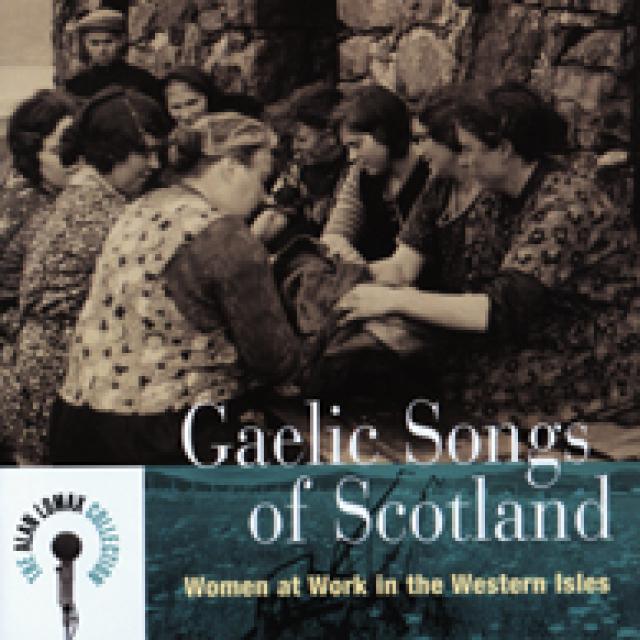
|
Gaelic Songs of Scotland: Women at Work in the Western Isles
Recorded in 1951 by Alan Lomax
Notes and translations by Margaret Bennett
On a visit to Gaelic Scotland in 1951 Alan Lomax recorded over 250 songs within a few days. This collection documents a way of life entirely lost in twenty-first century Scotland. It contains a rich variety of songs performed with breathtaking beauty and tenderness by women at work — at a time when work patterns in the Highlands and Islands of Scotland were still traditionally gender-based and women did most of the child-caring; domestic and dairying tasks; carding, spinning and dyeing of wool; and waulking (fulling) of cloth after it had been woven. Singing made the work lighter and more meaningful and induced the cows to give more plentifully of their milk.
“The peerless liner notes make the whole package akin to a valuable textbook, and the music contained within its faded leather cover is as pure, untouched, and otherworldly as the country itself.” —All Music Guide
|







